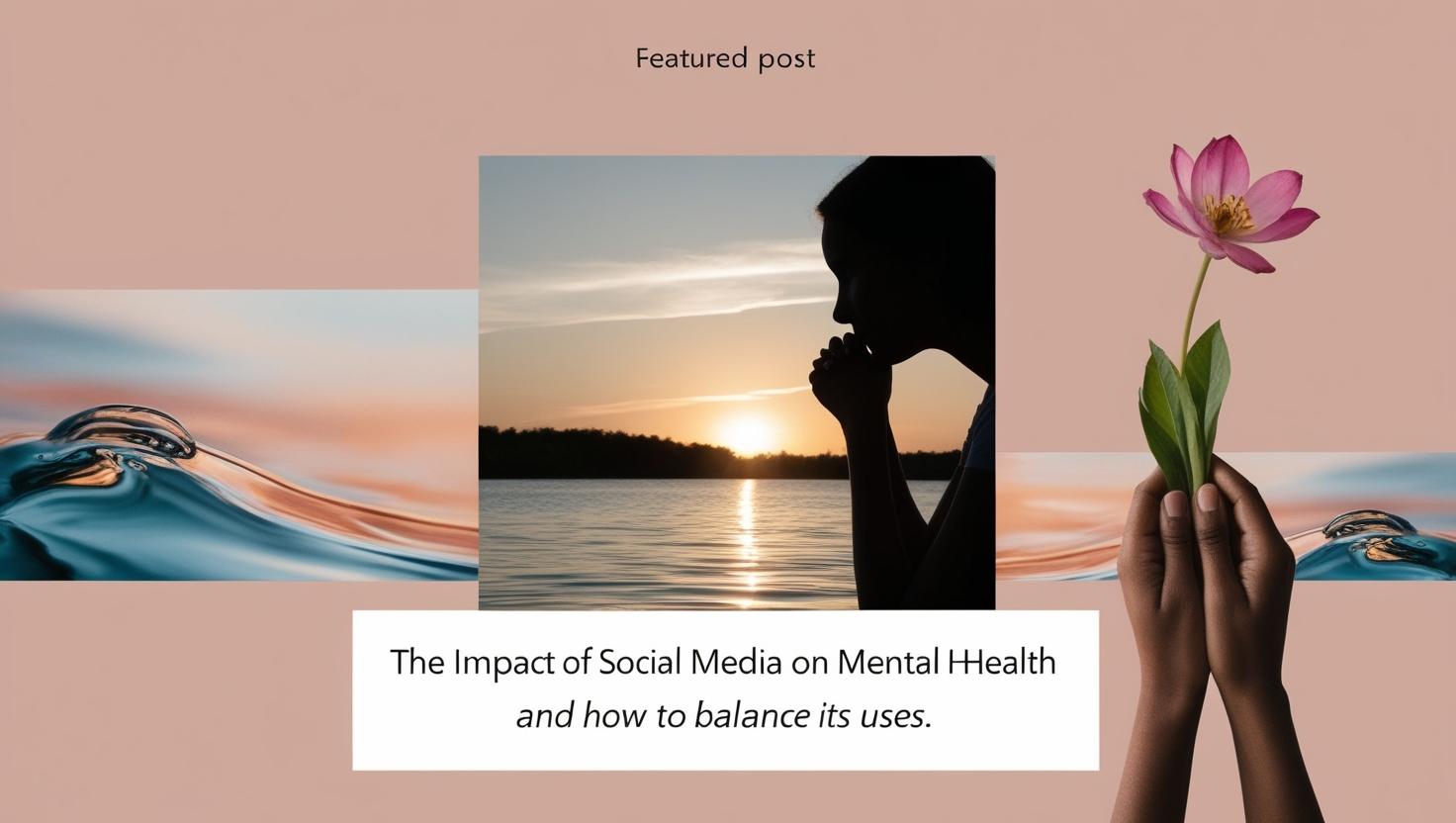Discover the impact of social media on mental health and learn how to balance its use for a healthier and happier life.
Introduction
In the digital age, social media has become an essential part of our lives. From scrolling through feeds to sharing personal moments, it connects us with the world in an instant. However, as much as it brings convenience and entertainment, studies have increasingly shown that excessive use of social media can have negative effects on mental health. Anxiety, depression, low self-esteem, and even sleep disturbances have been linked to prolonged screen time and constant digital interaction.
Have you ever felt overwhelmed after spending hours online? Do you find yourself comparing your life to the seemingly perfect posts of influencers? If so, you’re not alone. The need for likes, validation, and engagement can create unrealistic expectations and emotional distress. But don’t worry! In this article, we will explore how social media affects mental health and, more importantly, how to create a healthier relationship with it. Stay with us as we dive deep into this essential topic!
How Social Media Affects Mental Health
1. The Comparison Trap
One of the biggest pitfalls of social media is the tendency to compare ourselves to others. The curated content we see online often portrays only the best moments, leaving out struggles and hardships. This can lead to feelings of inadequacy and lower self-esteem.
- Seeing unrealistic beauty standards can contribute to body image issues.
- Viewing others’ achievements might make you feel like you’re falling behind.
- The “highlight reel” effect can distort reality and make daily life seem dull in comparison.
2. Increased Anxiety and Stress
Constant exposure to notifications, messages, and updates can create a sense of urgency and stress. Studies suggest that social media overuse can increase cortisol levels, the hormone responsible for stress. This can lead to:
- Sleep disturbances due to late-night screen scrolling.
- Overstimulation, making it harder to focus on real-life tasks.
- Anxiety from the fear of missing out (FOMO), leading to compulsive checking of updates.
3. The Dopamine Effect and Addiction
Social media platforms are designed to keep users engaged. Every like, comment, and share triggers a dopamine release, reinforcing a cycle of addiction. This can cause:
- The need for constant validation.
- Difficulty in spending time away from screens.
- Decreased interest in offline activities that once brought joy.
Strategies to Balance Social Media Use
1. Set Time Limits
One effective way to prevent social media from taking over your life is by setting boundaries on usage. You can:
- Use built-in screen time trackers to monitor daily usage.
- Set specific “social media-free” hours, such as before bed or during meals.
- Turn off unnecessary notifications to reduce distractions.
2. Follow Accounts That Inspire and Educate
If you find that certain content triggers negative emotions, it’s time to curate your feed. Unfollow accounts that make you feel insecure and instead follow:
- Pages that promote self-care and mental well-being.
- Educational content that adds value to your life.
- Positive influencers who share authentic, relatable content.
3. Practice Digital Detoxes
A digital detox can help reset your mind and improve your well-being. Try:
- Taking breaks from social media during weekends.
- Engaging in offline hobbies like reading, exercising, or meditating.
- Having tech-free zones in your home to create a peaceful environment.
4. Prioritize Real-Life Interactions
Social media should not replace real human connections. Make an effort to:
- Spend quality time with family and friends.
- Engage in face-to-face conversations rather than relying solely on messaging.
- Participate in community events or outdoor activities.
5. Be Mindful of Your Mental Health
Finally, self-awareness is key. Ask yourself:
- How do I feel after using social media?
- Am I using it as a tool or is it controlling me?
- Does it bring me joy or stress?
If you notice negative emotions, take proactive steps to regain control.
Conclusion
While social media has its benefits, it is crucial to use it mindfully to protect your mental health. By recognizing its impact, setting boundaries, and prioritizing real-life connections, you can create a healthier and more balanced relationship with digital platforms.
So, are you ready to take charge of your online habits? Start implementing these strategies today and experience a more fulfilling, stress-free life. Remember, you are in control of your digital experience!
